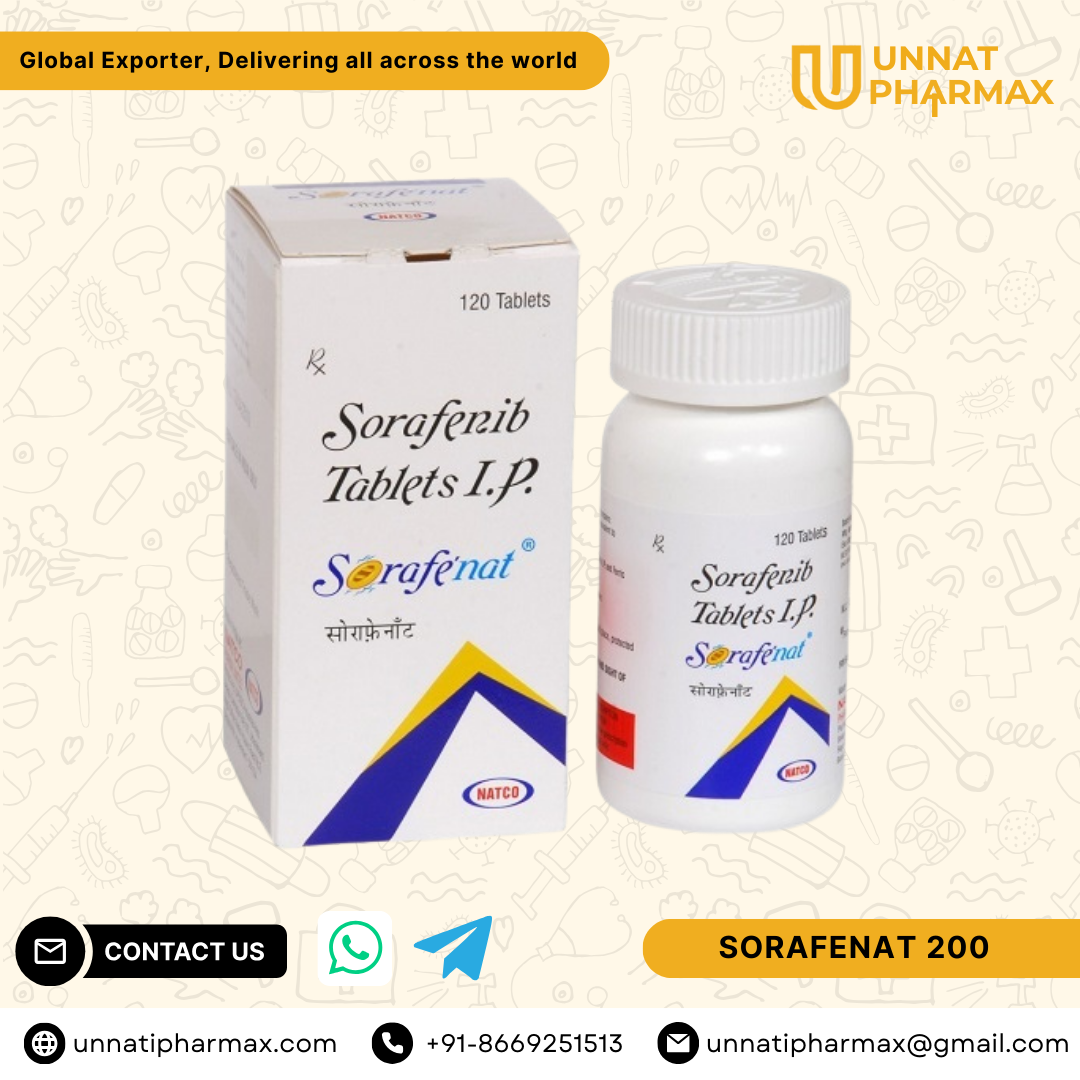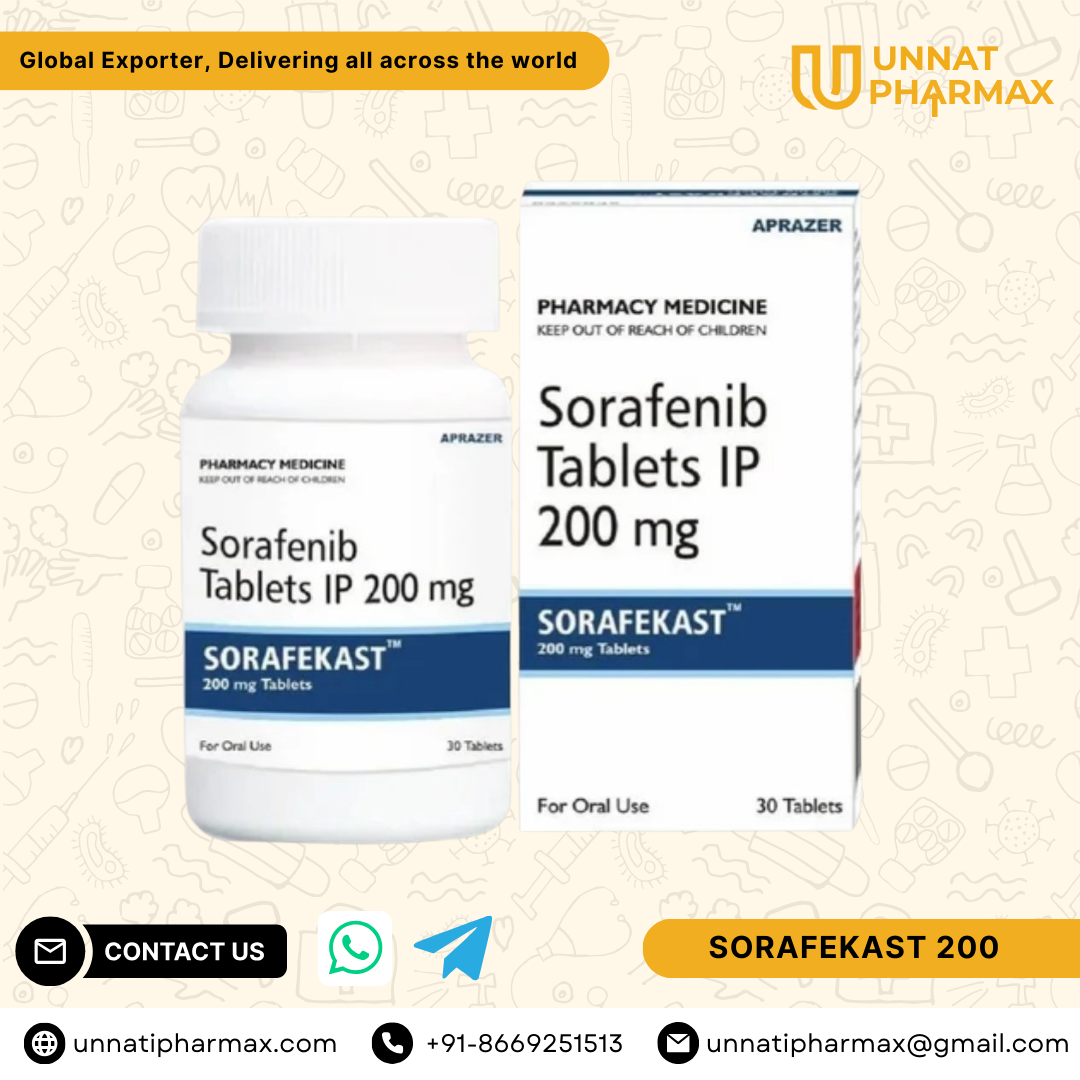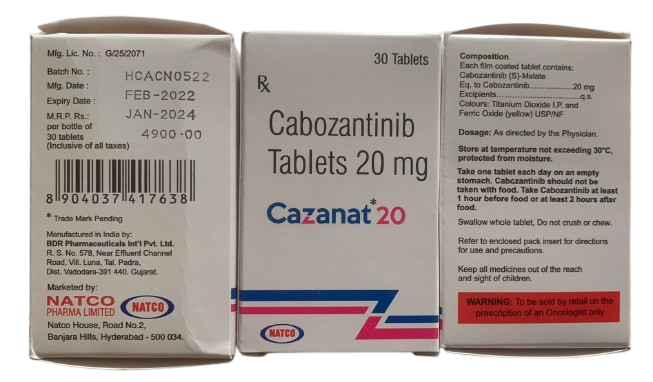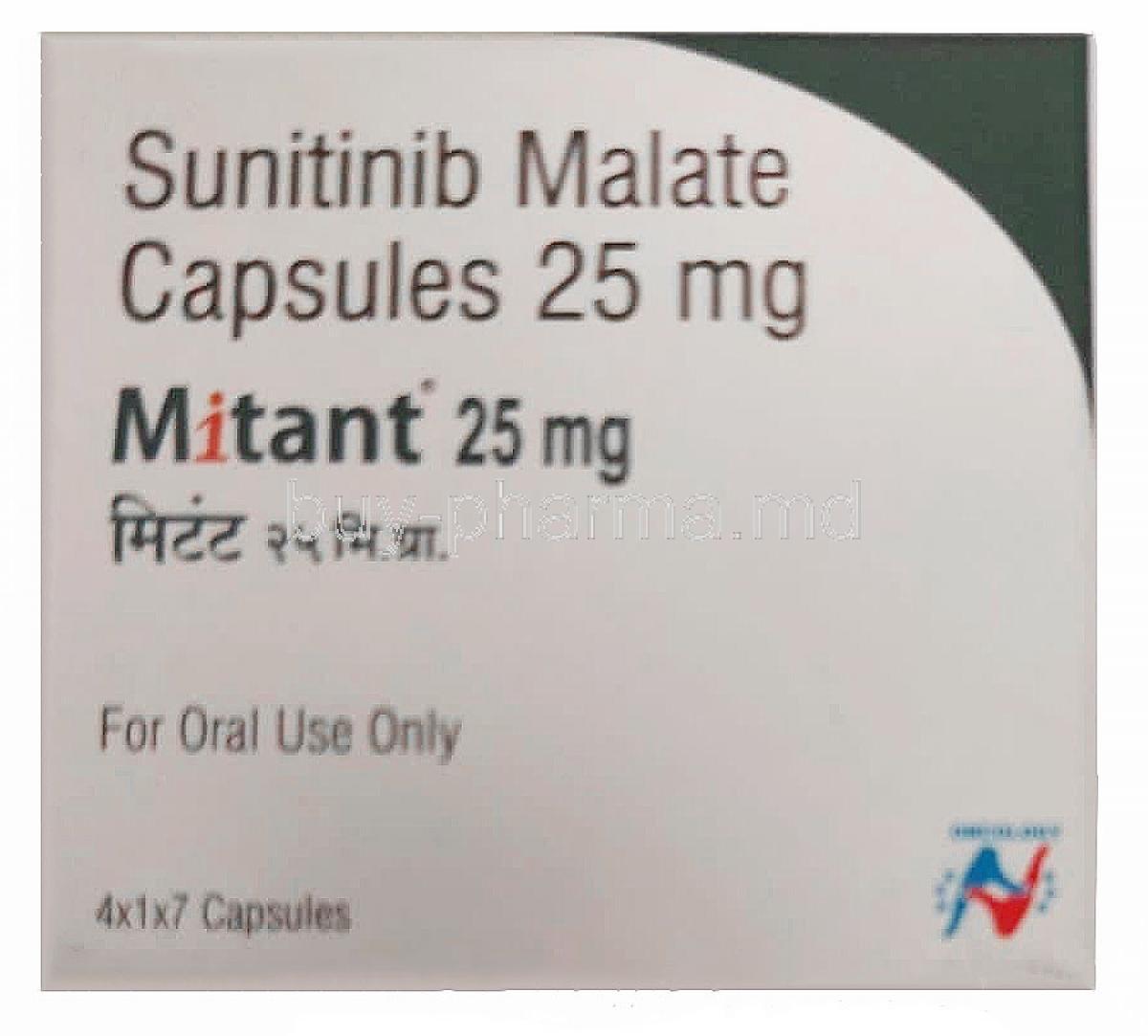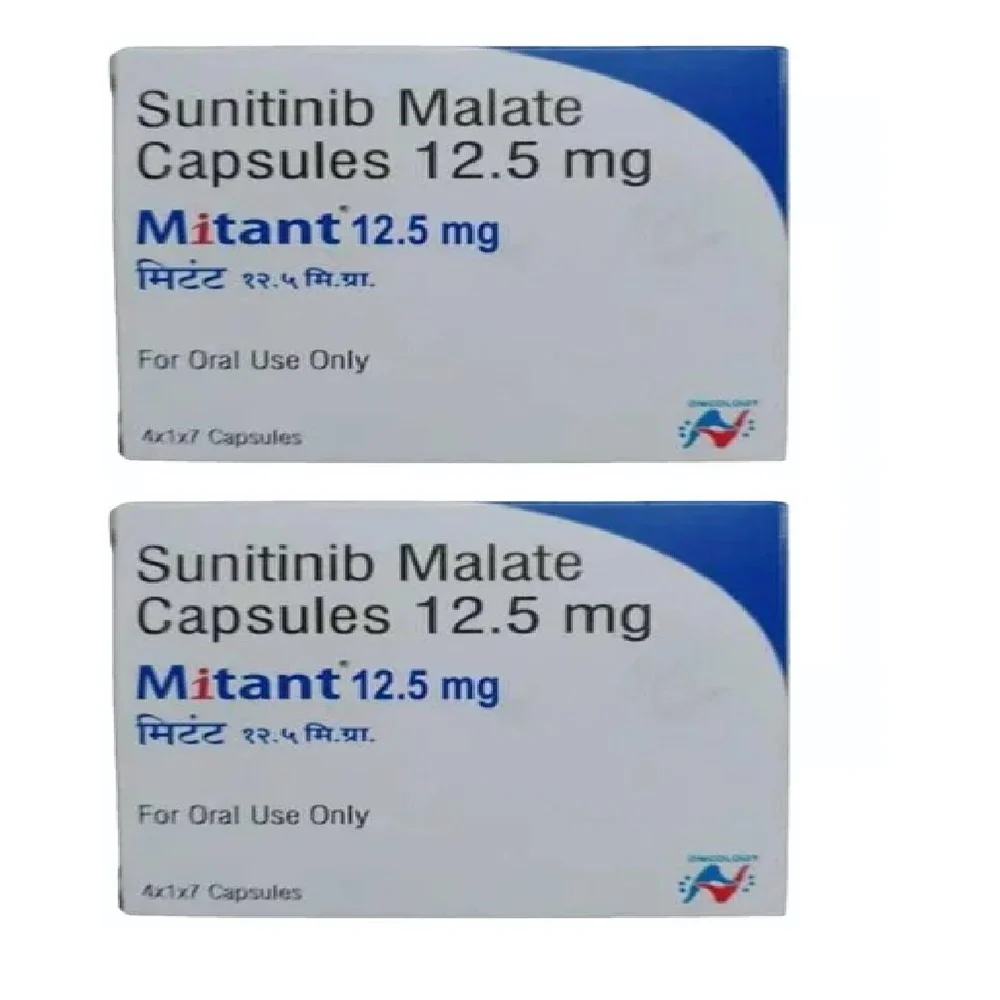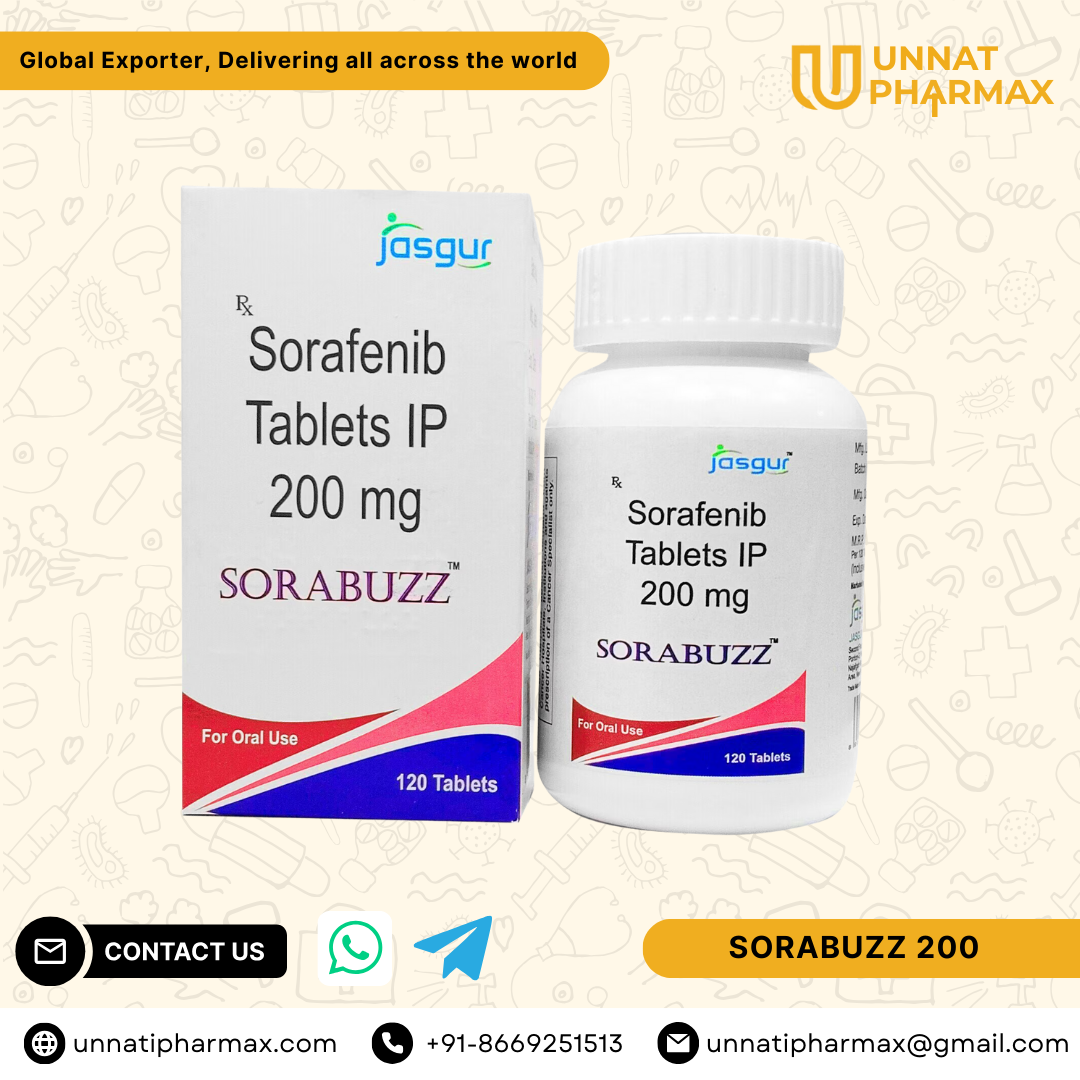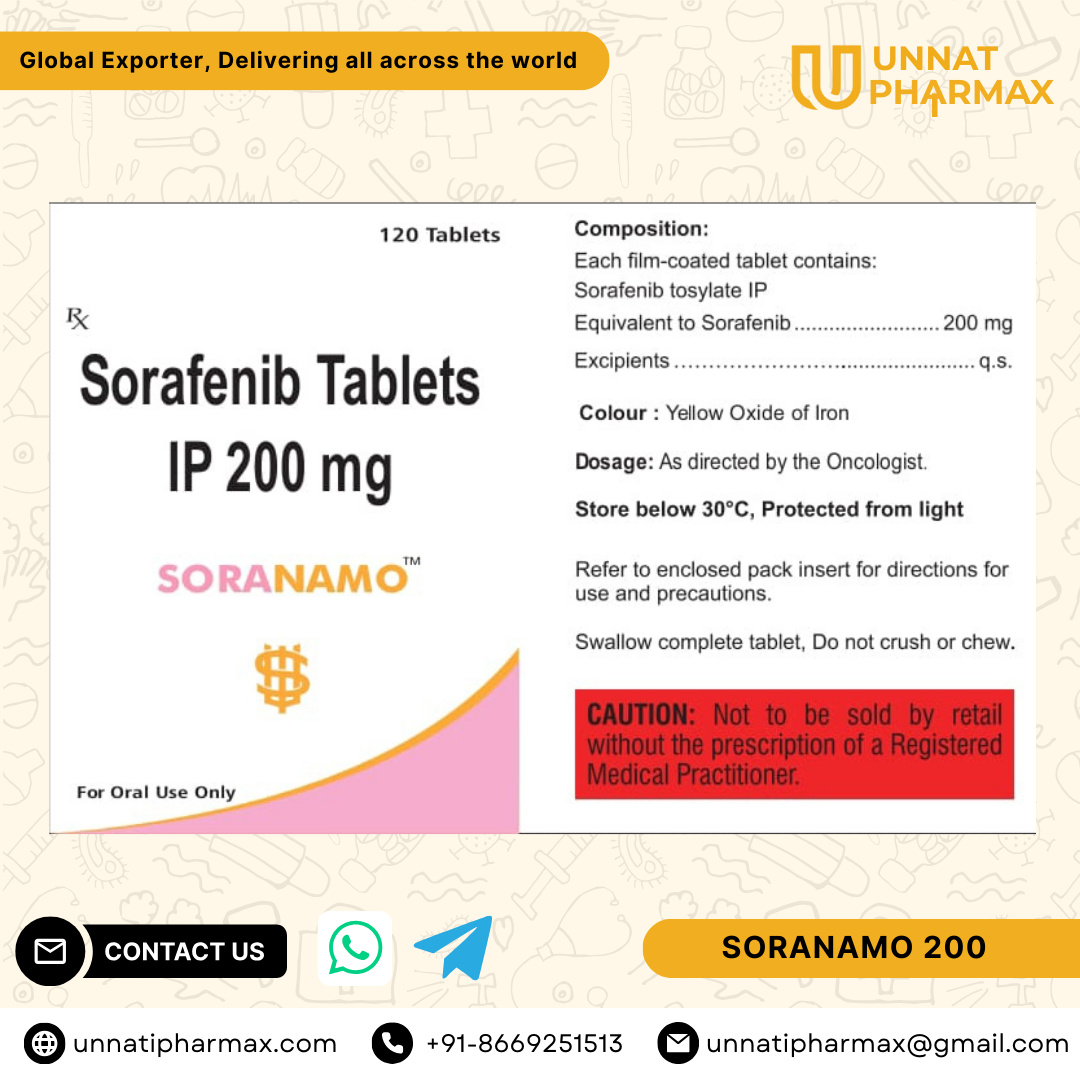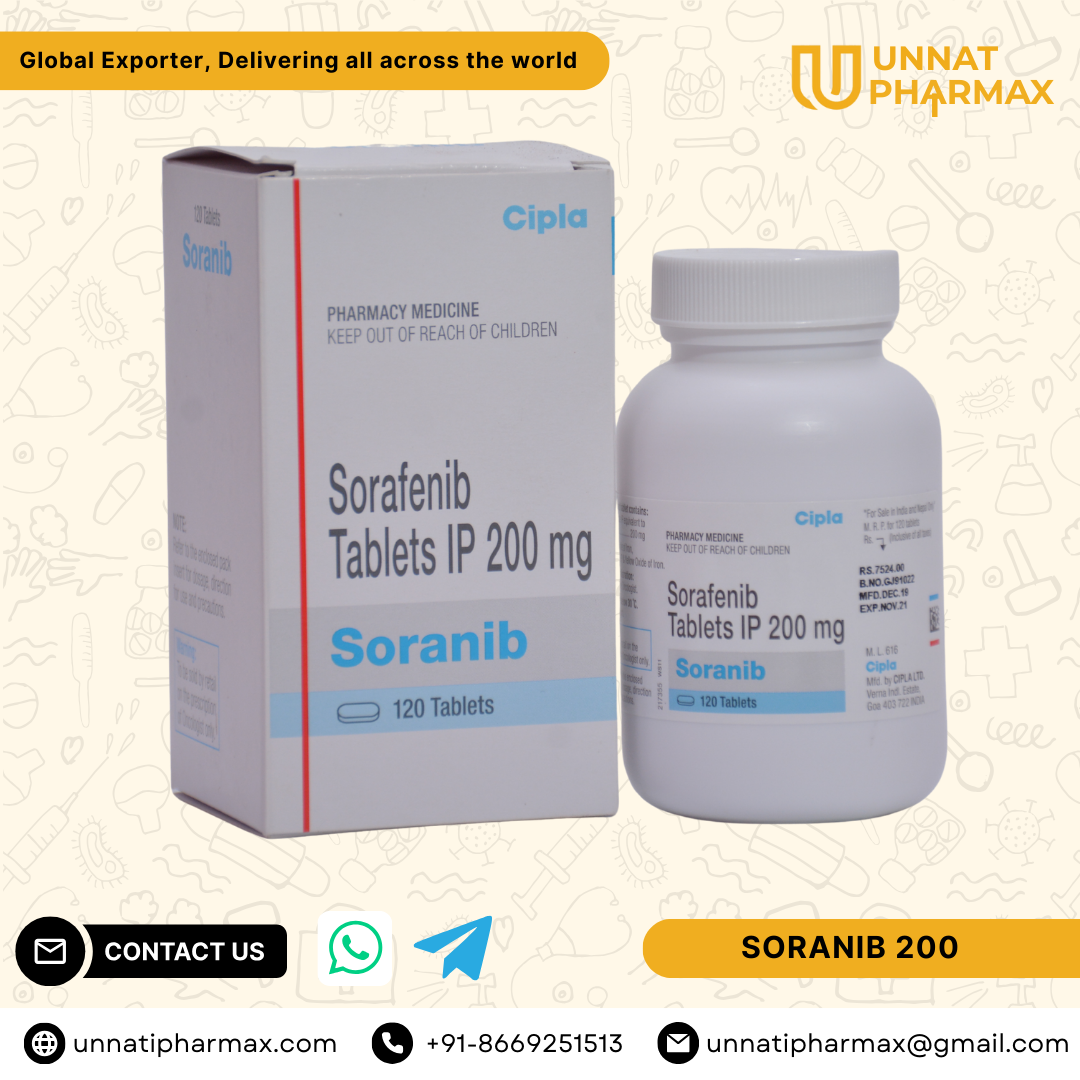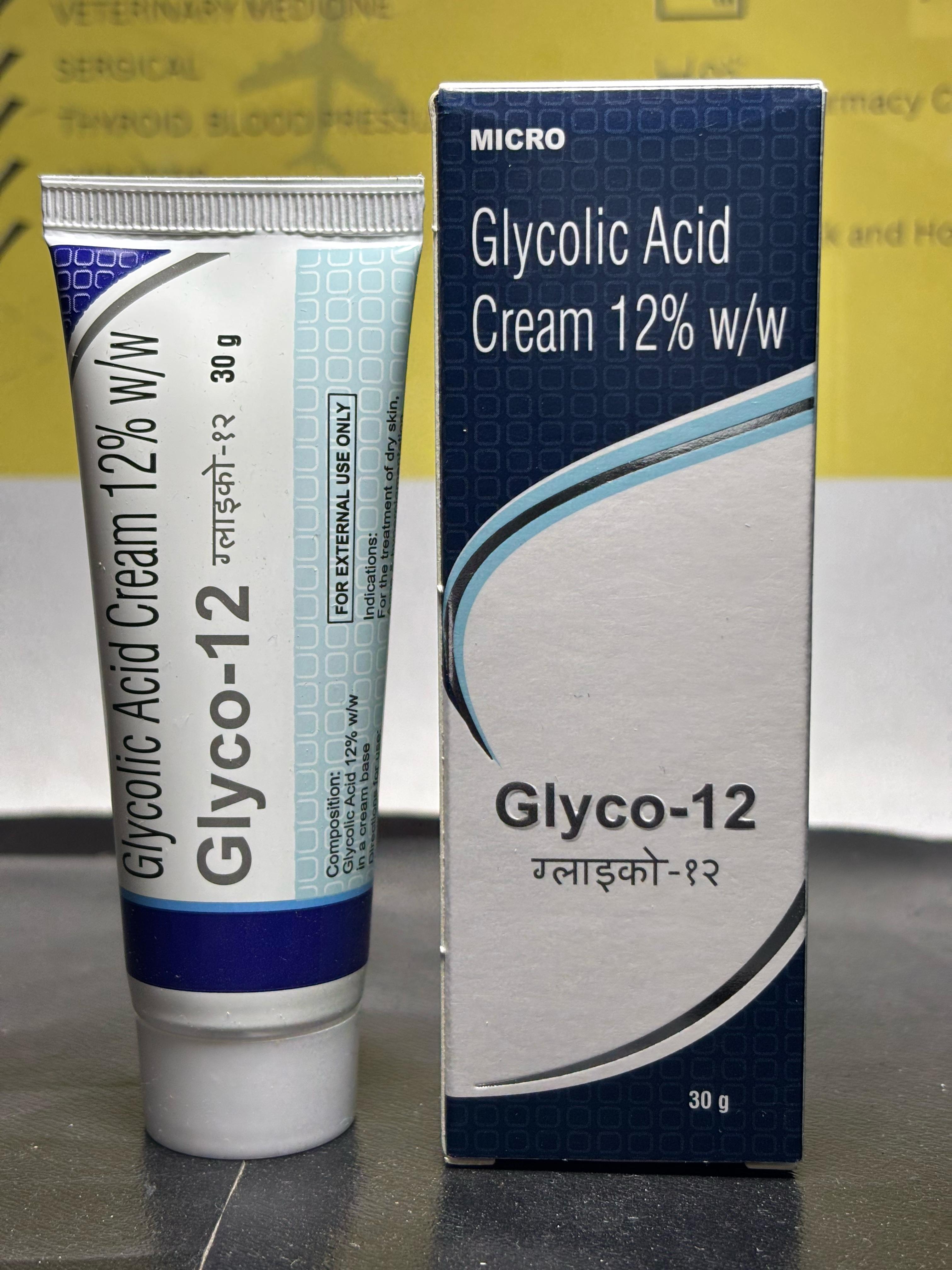Company Name: Unnati Pharmax Product Overview Brand Name: Sorafenat Active Ingredient: Sorafenib 200 mg Formulation: Film-coated tablet Country of Origin: India Uses: Treatment of advanced liver, kidney, and thyroid cancers. Action: Inhibits multiple kinases to slow tumor growth and angiogenesis. Dosage: 200 mg twice daily on empty stomach. Side Effects: Hand-foot syndrome, rash, nausea, diarrhea, fatigue. Precautions: Contraindicated in pregnancy; regular monitoring required. ❓ FAQs – Sorafenat (Sorafenib) 200 mg 1. What type of cancer is Sorafenat used for? Sorafenat is used in the treatment of liver cancer (hepatocellular carcinoma), kidney cancer (renal cell carcinoma), and certain types of thyroid cancer. 2. How should Sorafenat be taken? Take Sorafenat orally, 200 mg twice daily, on an empty stomach (1 hour before or 2 hours after meals), or exactly as directed by your doctor. 3. What if I vomit after taking Sorafenat? If you vomit after taking Sorafenat, do not take an extra dose. Simply continue with your next scheduled dose. 4. Are there dietary restrictions with Sorafenat? Yes. Avoid grapefruit or grapefruit juice, as it may increase side effects. Also, limit alcohol to reduce strain on the liver. 5. Can Sorafenat cause high blood pressure? Yes. Sorafenat can cause elevated blood pressure in some patients. Regular monitoring is necessary. 6. What should I do if I miss a dose of Sorafenat? If you miss a dose, skip it and take the next dose at the regular time. Do not double the dose to make up for a missed one. 7. Is Sorafenat safe in kidney disease? Yes, patients with kidney disease can usually take Sorafenat, but dose adjustment may be required in severe kidney impairment. 8. Can Sorafenat be taken along with chemotherapy? Yes, Sorafenat can sometimes be combined with other cancer treatments, but this must be done under strict medical supervision. 9. Does Sorafenat interact with blood thinners? Yes. Sorafenat may interact with blood thinners like warfarin, increasing the risk of bleeding. Close monitoring is required. 10. Who manufactures Sorafenat? Sorafenat is manufactured by Unnati Pharmax, India.
Send Message